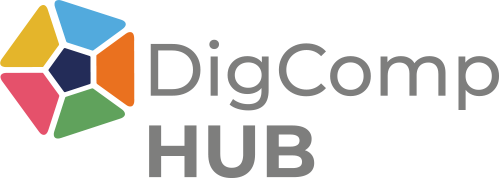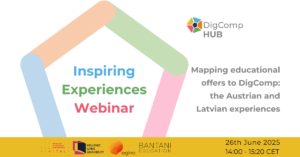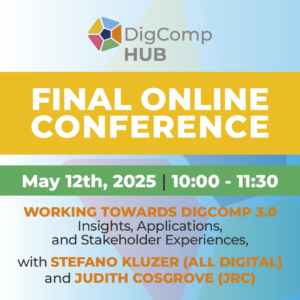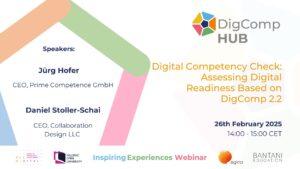The 21st-century challenges we face require a new form of collaboration involving individuals, organisations, and networks. It is through effective collaboration that lasting and innovative solutions can be found.
Diversity of perspectives and backgrounds can be a valuable resource if properly harnessed. When people with different experiences and viewpoints meet and collaborate, innovation flourishes, leading to a greater variety of ideas and approaches, which ultimately result in more creative and effective solutions.
It is important that citizens develop the ability to collaborate and actively participate and are able to encourage others to do the same. By pooling knowledge, skills, and resources, it is possible to achieve common goals and make a difference.
Digital technologies play a key role in fostering innovative collaboration. Online collaboration environments and tools such as co-working on shared documents offer new and effective ways to collaborate remotely. These solutions enable rapid and continuous sharing of ideas, feedback, and resources.
The ‘Communication and Collaboration’ area of the DigComp model describes the competences of the digital citizen as the ability to interact, communicate and collaborate using digital technologies, taking into account cultural and generational characteristics (competence: 2.5 Netiquette); as the ability to seek opportunities for self-empowerment and for participatory citizenship through appropriate digital technologies (competence: 2.3 Engaging in citizenship through digital technologies); as the ability to use digital tools and technologies for collaborative processes and the co-construction and co-creation of resources and knowledge (competence: 2.4 Collaborating through digital technologies).
In the LifeComp framewok, the competence ‘Collaboration’ is included in the area of social competences and is declined as the intention to contribute to the common good and awareness that others may have different cultural affiliations, backgrounds, beliefs, values, opinions or personal circumstances (descriptor: S3.1); as understanding the importance of trust, respect for human dignity and equality, coping with conflicts and negotiating disagreements to build and sustain fair and respectful relationships (descriptor: S3.2); as fair sharing of tasks, resources and responsibility within a group taking into account its specific aim; eliciting the expression of different views and adopting a systemic approach (descriptor: S3.3).






